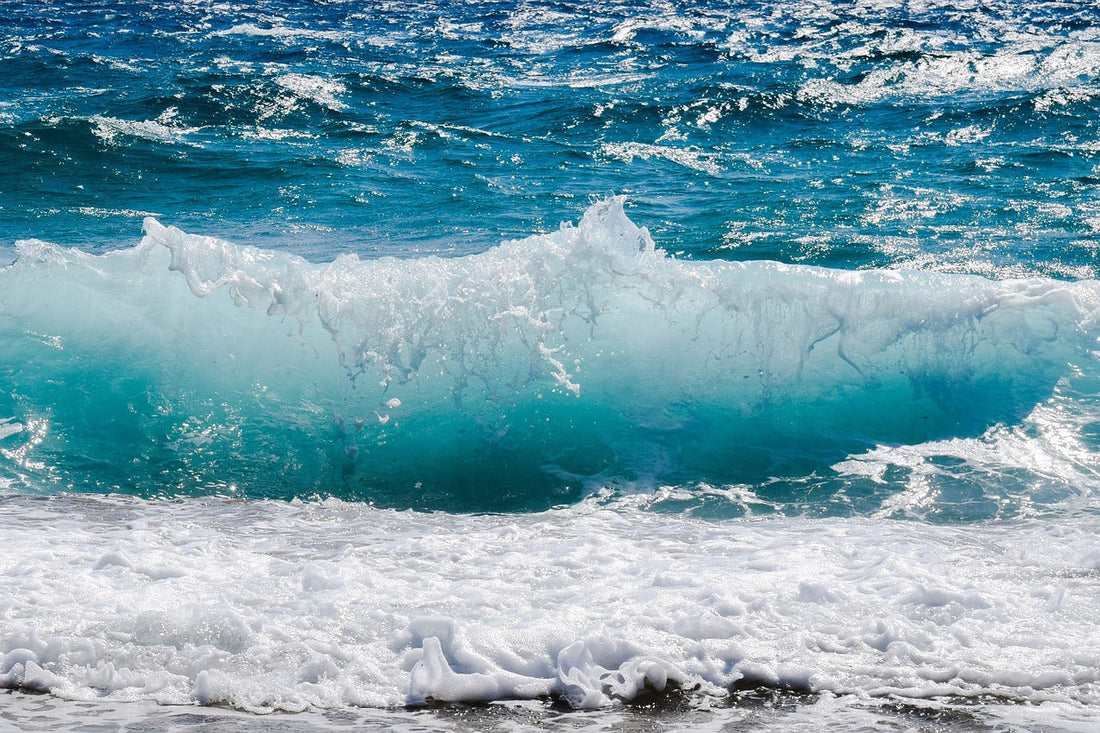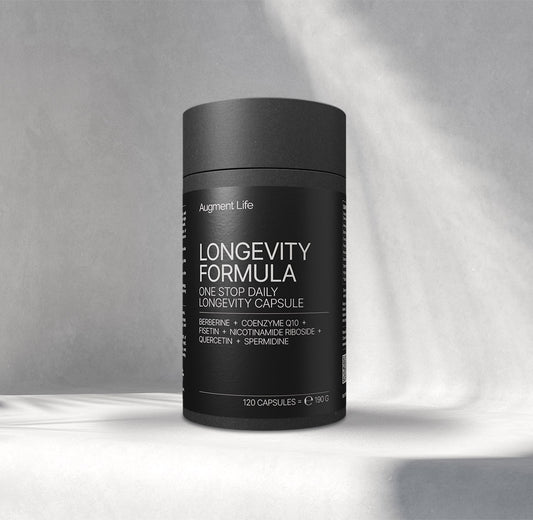Blue zones are special geographical areas of the world where people tend to live much longer than the average. These areas see more 100-year-olds than any other place in the world, and they all have something in common - their habits. What do the inhabitants of blue zones eat, drink, and do every day? What is the blue zone lifestyle that promotes longevity, and what can we learn from it?
Keep reading and discover the longevity-promoting habits and lessons from blue zones!
What is the concept of Blue Zone?
A blue zone is a geographical region where the average human life expectancy is usually above 80 (the world's average life expectancy is 72). This exceptionally longer lifespan is often connected to a specific way of life that's common throughout the blue zones and is made of:
- physical activity,
- low stress,
- rich social interactions,
- a local whole foods diet,
- low disease incidence.
While the name "blue zone" implies that these regions may be close to a seashore, that's not how they got their name. The scientists who originally researched these areas, including Dan Buettner, used blue pens to mark the areas with long-living populations.
The first-ever recorded blue zone was Sardinia, Italy. In 1999, Deiana et al. found that the Sardinian population had about 13 100-year-olds (centenarians) to 100,000 people (1), and later it was specified to be in the province of Nuoro (2).
How many Blue Zones are there?
In his book called "The Blue Zones", Dan Buettner defined five blue zones and created a Blue Zones map:
- Icaria (Greece),
- Ogliastra, Sardinia (Italy),
- Okinawa (Japan),
- Nicoya Peninsula (Costa Rica),
- The Seventh-day Adventists in Loma Linda, California (USA).
Numerous scientific papers have confirmed the Blue Zone communities list, claiming that these areas have unusually high rates of people who live to be 90 or 100 (2, 3, 4). There might be many more blue zones in the world, and the existing ones might also differ from the original list.
The reason for the longevity of people living in the blue zones is the most interesting fact to study. Why do so many people in these areas tend to live longer on average than others? Let's explore.
Blue Zone lifestyle
The blue zones list clearly shows that not all zones can be found in one province, country, or even continent. In fact, it's been proven that the longevity trait of people living in blue zones can be attributed to genetics only by about 20 to 30% (5).
So what do people living in these zones actually have in common?
What are the common traits of blue zones?
There are many traits that people from the blue zones have in common, and they're mostly connected to diet and lifestyle. These are:
- Whole foods and plant-based diet - blue zones' inhabitants mostly eat whole food and plant-based foods. This doesn't mean they're vegetarians or vegans by any means, but they tend to eat meat only up to 5 times a month (6, 7). They more often eat fish, and locally and seasonally grown fruits and veggies. They also often eat less than they need to and unknowingly stay in a slight caloric deficit, which has been proven to be a health benefit. We'll talk more in detail about the blue zone diet in the section below.
- Regular movement- People living in the blue zones don't necessarily go to the gym every day, but they exercise regularly. Their way of life incorporates walking, cycling, gardening, fishing, and working on the farm. Their homes are not full of conveniences; they still use hand tools, knead their own bread, and clean by hand. Exercise is deeply connected to a healthier life in old age and is especially important for preventing the development of many age-related diseases (8).
- Enough quality sleep - while sleeping not enough or too much can be associated with disease development, 7 hours of sleep seems to be an optimal amount of time. However, people living in blue zones don't calculate how much they will sleep, they just listen to their bodies and sleep as much as they hint them to (9).
- A vibrant social life - people in blue zones often hang out with their families and friends, and especially tend to eat their meals in the company of others.
- Sense of purpose - having a sense of life purpose is a common thing among people who live in blue zones. In Okinawa, a sense of purpose is called "ikigai", and in Nicoya, it's called "plan de vida". It's possible that having a sense of life purpose results in better mental health (10).
- Being spiritual - most people who live in blue zones are religious or spiritual, which has been proven good for their overall health and mental well-being. This might be because religious communities offer social support, and spiritual people have fewer chances of being depressed (11).
One more important thing to note here is that the inhabitants of blue zones never purposefully decided to change their habits and live longer. They didn't reach a certain age and then changed their diet or decided to take supplements or exercise. What led to their longevity is their way of life, incorporated through habits that we now know are very healthy. Also, blue zones are an environment that fosters longevity, and most all people living there have the same way of living their daily lives.
In meeting numerous centenarians, Buettner realized that in no case did they reach middle age and then decide to pursue longevity through a change in diet, taking up exercise, or finding some nutritional supplement. The longevity occurred because they were in the right environment—an environment that fostered a lifestyle of longevity.
Let's look more into the blue zone diets!
Blue Zones diet
As we already mentioned, the inhabitants of blue zones don't base their diets on meat. If anything, their diets are based on fresh vegetables and fish, and meat is not that often on the menu. Except for fish and veggies, their diet contains a lot of legumes (beans, peas, lentils), nuts, and whole grains.
Eating less red meat and eating more plant-based diets was scientifically shown to be beneficial for your overall health, especially when it comes to your heart and cardiovascular system (12). Fish is rich in omega-3 fatty acids, which can also contribute to the overall health and antioxidant protection of the body.
Not everything is in what you eat either. One important fact about the people in blue zones to remember is that they almost always stay in a slight caloric deficit. When questioned, they would usually answer how they tend to eat until they feel about 80% full and never more. In Okinawa, this is called the "hara hachi bu" rule (13).
Being in a caloric deficit is known to be good for health and longevity, as your body stays in the process of autophagy. We explored this topic before, have a look if you're interested in knowing more:
One last thing to add about the very fascinating way how blue zones eat is that they consume alcohol only in moderation. Alcohol is a known carcinogen and it's widely known how negatively it can impact your health, especially when abused in high amounts (14).
However, at least two blue zones (Icaria and Sardinia) are known for drinking a glass or two of red wine every day. It remains unclear whether any health benefits come from alcohol itself, and it's more likely that red wine provides health benefits through antioxidants, like resveratrol. We explored these topics further in our articles:
- Does Alcohol Make You Age Faster?
- Why Is Resveratrol Important?
- How Does Resveratrol Alter the Trajectories of Alzheimer’s Disease?
Conclusion
The habits of people living in the blue zones might tell a story of a long and healthy life. Lots of physical activity, a complete social life, and a plant-based diet seem to form the perfect longevity formula, even though we might never know the full story.
The first scientist who ever studied the blue zones, Dan Buettner, probably said it best: "Living longer and feeling better is the sum of a few small easy choices you can incorporate into everyday life".
Try to implement new practices into your daily routine, like regular movement, and having a quality sleep routine. Spend time in nature and eat good food in the company of your friends and family, and don't forget to enjoy the small things in life. Practice mindfulness and have stress-relieving hobbies and practices.
Literature references:
- Deiana L, Ferrucci L, Pes GM, Carru C, Delitala G, Ganau A, Mariotti S, Nieddu A, Pettinato S, Putzu P, Franceschi C, Baggio G. AKEntAnnos. The Sardinia Study of Extreme Longevity. Aging (Milano). 1999 Jun;11(3):142-9. PMID: 10476308.
- Poulain M, Pes GM, Grasland C, et al. (September 2004). "Identification of a geographic area characterized by extreme longevity in the Sardinia island: the AKEA study" (PDF). Experimental Gerontology. 39 (9): 1423–9.
- Salaris L, Poulain M, Samaras TT. Height and survival at older ages among men born in an inland village in Sardinia (Italy), 1866-2006. Biodemography Soc Biol. 2012;58(1):1-13. doi: 10.1080/19485565.2012.666118.
- Willcox BJ, Willcox DC, He Q, Curb JD, Suzuki M. Siblings of Okinawan centenarians share lifelong mortality advantages. J Gerontol A Biol Sci Med Sci. 2006 Apr;61(4):345-54. doi: 10.1093/gerona/61.4.345.
- vB Hjelmborg J, Iachine I, Skytthe A, Vaupel JW, McGue M, Koskenvuo M, Kaprio J, Pedersen NL, Christensen K. Genetic influence on human lifespan and longevity. Hum Genet. 2006 Apr;119(3):312-21. doi: 10.1007/s00439-006-0144-y.
- Pes GM, Tolu F, Dore MP, Sechi GP, Errigo A, Canelada A, Poulain M. Male longevity in Sardinia, a review of historical sources supporting a causal link with dietary factors. Eur J Clin Nutr. 2015 Apr;69(4):411-8. doi: 10.1038/ejcn.2014.230.
- Orlich MJ, Singh PN, Sabaté J, Jaceldo-Siegl K, Fan J, Knutsen S, Beeson WL, Fraser GE. Vegetarian dietary patterns and mortality in Adventist Health Study 2. JAMA Intern Med. 2013 Jul 8;173(13):1230-8. doi: 10.1001/jamainternmed.2013.6473.
- Pes GM, Tolu F, Poulain M, Errigo A, Masala S, Pietrobelli A, Battistini NC, Maioli M. Lifestyle and nutrition related to male longevity in Sardinia: an ecological study. Nutr Metab Cardiovasc Dis. 2013 Mar;23(3):212-9. doi: 10.1016/j.numecd.2011.05.004.
- Naska A, Oikonomou E, Trichopoulou A, Psaltopoulou T, Trichopoulos D. Siesta in healthy adults and coronary mortality in the general population. Arch Intern Med. 2007 Feb 12;167(3):296-301. doi: 10.1001/archinte.167.3.296.
- Hill PL, Turiano NA. Purpose in life as a predictor of mortality across adulthood. Psychol Sci. 2014 Jul;25(7):1482-6. doi: 10.1177/0956797614531799.
- Li S, Stampfer MJ, Williams DR, VanderWeele TJ. Association of Religious Service Attendance With Mortality Among Women. JAMA Intern Med. 2016 Jun 1;176(6):777-85. doi: 10.1001/jamainternmed.2016.1615.
- Sinha R, Cross AJ, Graubard BI, Leitzmann MF, Schatzkin A. Meat intake and mortality: a prospective study of over half a million people. Arch Intern Med. 2009 Mar 23;169(6):562-71. doi: 10.1001/archinternmed.2009.6.
- Willcox BJ, Willcox DC, Todoriki H, Fujiyoshi A, Yano K, He Q, Curb JD, Suzuki M. Caloric restriction, the traditional Okinawan diet, and healthy aging: the diet of the world's longest-lived people and its potential impact on morbidity and life span. Ann N Y Acad Sci. 2007 Oct;1114:434-55. doi: 10.1196/annals.1396.037.
- Klatsky AL, Friedman GD, Armstrong MA, Kipp H. Wine, liquor, beer, and mortality. Am J Epidemiol. 2003 Sep 15;158(6):585-95. doi: 10.1093/aje/kwg184.











